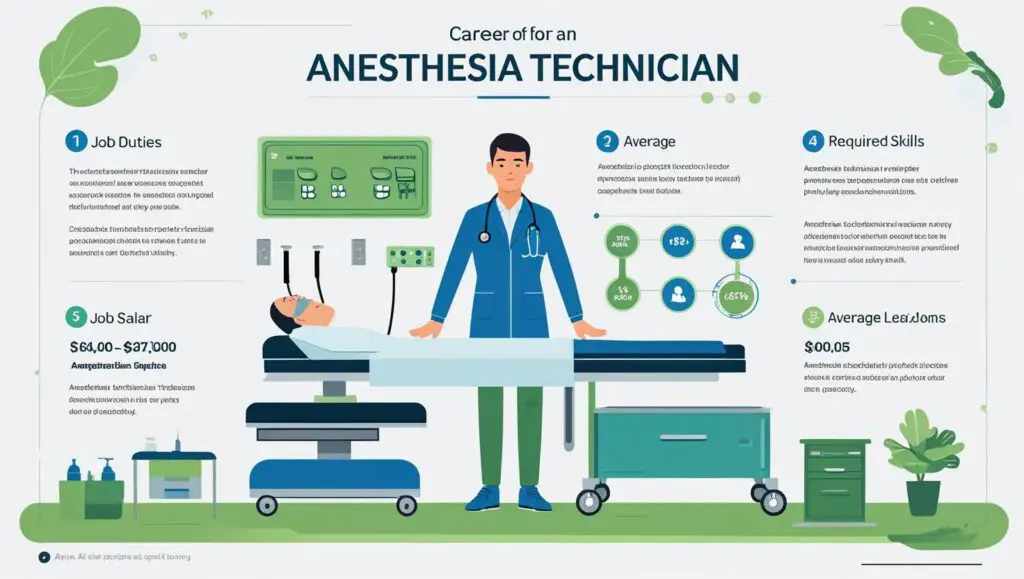What Does an Anesthesia Tech Do?
Ever wonder who’s making sure the anesthesia equipment is working perfectly before a surgery starts? That’s your anesthesia tech They’re the unsung pros keeping the surgical world running safely.
Why the Anesthesia Tech Role Matters in the OR
Surgical support tech are like backstage team at a concert. You don’t continuously see them, but without them, the appear doesn’t go on. They plan hardware, bolster anesthesiologists, and troubleshoot issues in genuine time.
Anesthesia Tech’s Behind-the-Scenes Duties
They check machines, screen oxygen tanks, and make beyond any doubt everything is secure and sterile. In the event that something falls flat mid-procedure, they bounce into activity. No hesitation. Just solutions.
Anesthesia Tech Responsibilities: A Day in the Life
Let’s break it down—because Surgical support tech don’t just push buttons.
Setting Up Anesthesia Equipment
Techs begin by prepping the OR with anesthesia machines, IV lines, and observing instruments. Everything should be calibrated and prepared some time recently the understanding arrives.
Monitoring and Maintaining Anesthesia Machines
Amid surgery, Surgical support techback the anesthesiologist by keeping an eye on hardware, settling cautions, and supplanting any coming up short adapt.
Sterilizing and Prepping Surgical Tools
Post-op? It’s cleanup mode. Tools are sterilized, machines are reset, and supplies are stocked. Techs make sure the next procedure starts without a hitch.
Top Skills Every Anesthesia Tech Should Have
To do this job well, you need more than just medical knowledge. You need grit, precision, and a techie brain.
Technical Proficiency in Anesthesia Technology
You’ll work with progressed frameworks, checking gadgets, and gas conveyance machines. Knowing how they function-and how to settle them-is key.
Soft Skills That Set an Anesthesia Tech Apart
Communication is everything. You’ll arrange with specialists, helpful orderlies, and anesthesiologists in high-pressure circumstances. Kindness and intrigued go a long way.
Why Attention to Detail Is Crucial for Techs
A missed tube or inaccurate setting can jeopardize a patient’s security. Minor subtle elements can make a gigantic distinction.
How to Become an Anesthesia Tech
Ready to get started? Here’s what the journey looks like.
Education Path to Becoming an Anesthesia Tech
Start with a high school diploma. Then, pursue a certificate or associate’s degree in Surgical support techor a related field.
Certification & Training Requirements
Whereas not continuously required, getting certified by ASATT (American Society of Surgical support tech and Specialists) will allow you a competitive edge.
Clinical Experience in Anesthesia Tech Programs
Programs regularly incorporate internships or clinical turns. This hands-on time in genuine healing centers is gold-it prepares you for the genuine world.
Anesthesia Tech Work Environment and Lifestyle
So what’s life actually like in this role?
Common Workplaces for Anesthesia Techs
You’ll find techs in hospitals, surgical centers, trauma units, and even dental offices. If there’s anesthesia, there’s a need for a tech.
A Realistic Look at Daily Life
Expect long shifts, often starting early in the morning. You’ll be on your feet a lot, moving between rooms, prepping gear, and supporting surgery after surgery.
Pros and Cons of Being an Anesthesia Tech
Let’s keep it real—every job has highs and lows.
Advantages of Choosing This Career
-
In-demand role with job security
-
You get to work closely with life-saving teams
-
Great stepping stone for further healthcare careers
Potential Drawbacks to Consider
-
Physically demanding (you’ll be moving non-stop)
-
High responsibility under pressure
-
Limited public recognition (but hey, you’ll know your worth!)
Anesthesia Tech Salary and Career Outlook
Let’s talk numbers and growth.
How Much Does an Anesthesia Tech Make?
Pay rates ordinarily extend from $40,000 to $65,000/year, depending on area, certification, and involvement. Some senior techs in major cities earn even more.
Job Market and Growth Potential
Healthcare is developing fast-and the request for anesthesia back parts is riding that wave. Openings are particularly solid in healing centers and surgical centers.
Trends Shaping the Anesthesia Tech Field
Like everything else in healthcare, tech is transforming this field.
Emerging Technologies in Anesthesia Support
We’re seeing more automation in gas delivery, smarter machines, and integrated patient monitoring systems.
Surgical support tech are becoming more digitally savvy by the day.
How AI Is Impacting Anesthesia Tech Roles
AI is beginning to help in observing vitals and anticipating complications. But don’t worry-humans are still basic for real-time problem-solving.
Is Surgical support tech the Right Career for You?
In the event that you’re inquisitive approximately medication, cherish hands-on work, and want to be portion of something meaningful without planning to med school, this may well be your way. You’ll be portion of a group that spares lives-quietly and certainly.
Conclusion
The Surgical support tech is one of the healthcare field’s most underrated champions. From prepping surgeries to keeping up basic gear, these techs are fundamental in keeping working rooms secure and running like clockwork. Whether you’re investigating modern career alternatives or prepared to jump into a specialized therapeutic part, Surgical support tech might fair be the idealize fit.
FAQs
Q1: Is Surgical support tech a good career choice?
Absolutely. It offers strong work soundness, hands-on work, and the chance to be portion of life-saving strategies.
Q2: Do I require a degree to gotten to be an anesthesia tech?
Not always. A certificate or associate’s degree is usually enough, but formal training is essential.
Q3: Can I become an anesthesia tech without certification?
You can, but certification (like from ASATT) improves your chances of getting hired and can increase your salary.
Q4: What’s the distinction between an anesthesia tech and anesthesiologist?
An anesthesiologist could be a authorized specialist who regulates anesthesia
Q5: How long does it take to become an anesthesia tech?
Most programs take about 1–2 years, including clinical practice.

